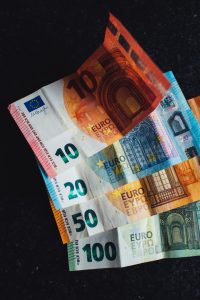As the forex market continues to grow in popularity, the need for brokers who can help traders navigate the market has also increased. While there are many legitimate forex brokers out there, there are also a number of scammers and fraudsters who are looking to take advantage of inexperienced traders. This is where b book brokers come in.
A b book broker is a type of forex broker that operates using a b book model. In this model, the broker does not pass traders’ orders onto a liquidity provider or the wider market. Instead, the broker acts as the counterparty to the trade, taking the opposite position to the trader. This means that when a trader makes a profit, the b book broker makes a loss, and vice versa.
Identifying a b book broker can be tricky, as many brokers do not openly advertise that they operate using this model. However, there are a few key indicators that can help traders identify whether a broker is a b book broker or not.
Firstly, traders should look at the broker’s business model. B book brokers typically make money by taking the opposite side of their clients’ trades, rather than charging commissions or spreads. This means that if a broker’s revenue model is based solely on the profits it makes from traders’ losses, it is likely a b book broker.
Another way to identify a b book broker is by looking at the types of trading accounts they offer. B book brokers typically offer fixed spread accounts, where the spread remains the same regardless of market conditions. This is because the broker is not passing the trader’s orders onto a liquidity provider, so there is no need to adjust the spread to reflect changes in the wider market. Brokers that offer variable spreads, on the other hand, are more likely to be passing traders’ orders onto a liquidity provider.
It is also important to look at the broker’s trading conditions. B book brokers are known for offering high leverage and low margin requirements, as they are able to offset the risk of traders’ positions by taking the opposite side of the trade. This means that traders can open larger positions with less capital, but also increases their risk of incurring large losses.
Traders should also look at the broker’s regulatory status. While not all b book brokers are scams, many operate in unregulated or lightly regulated jurisdictions, where they are not subject to the same oversight as brokers that are licensed by reputable regulatory bodies such as the Financial Conduct Authority (FCA) in the UK or the National Futures Association (NFA) in the US. Traders should be wary of brokers that are not regulated by a reputable body, as this can increase the risk of fraud or other unethical behaviour.
Finally, traders should look at the broker’s reputation. B book brokers are known for engaging in practices such as stop-loss hunting and order manipulation, which can lead to traders incurring losses that are larger than they should be. Traders should do their research and read reviews from other traders before choosing a broker, to ensure that they are reputable and trustworthy.
In conclusion, identifying a b book broker in forex can be difficult, but there are a few key indicators that traders can look out for. Traders should pay attention to the broker’s business model, trading accounts, trading conditions, regulatory status, and reputation to determine whether they are a b book broker or not. By doing their due diligence and choosing a reputable broker, traders can help to protect themselves from the risks posed by b book brokers and other fraudulent entities in the forex market.





